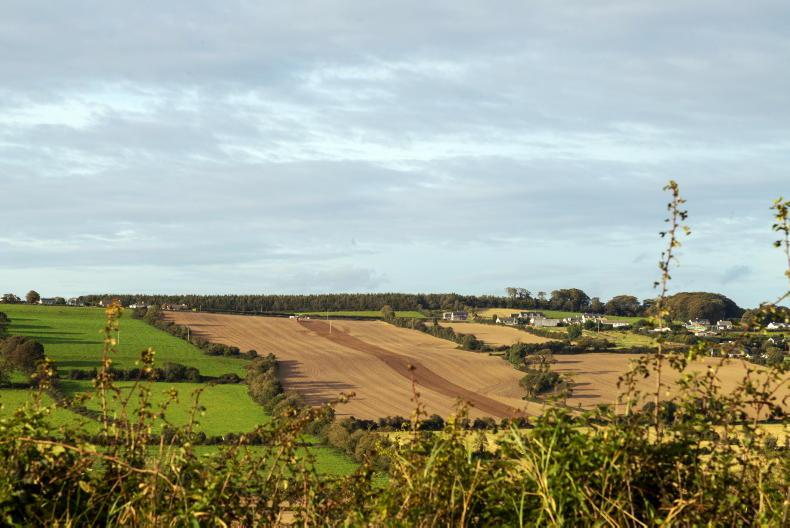This week’s news that the self-styled ‘environmental pillar’ of environmental NGOs have withdrawn from the 2030 Agri-Food strategy committee comes as no surprise.
The decision by the environmental lobby is clearly a calculated move, which allows these organisations to distance themselves from the 2030 strategy process and continue their campaign against Irish agriculture.
Yet for all the posturing, it’s important to note that the true environmental groups remain involved in the process to develop a strategy roadmap for Irish agriculture out to 2030, which is due to be published very soon.
Some of the noisier environmental groups claim sole dominion when it comes to campaigning on environmental issues.
But they are not the only ones who care for the environment in Ireland.
Negligible relevance
Indeed, the relevance of many of these groups to Irish farmers on a day-to-day basis is negligible.
Instead, the organisations that work hand in hand with farmers on knowledge transfer to encourage change remain heavily involved in the 2030 strategy process.
This includes stakeholders such as the farm organisations, the Environmental Protection Agency (EPA), Teagasc and many others, including UCD’s Institute of Food and Public Health, Bórd Iascaigh Mhara and the Department of Agriculture.
Ideology
Many of the most prominent environmental NGOs in Ireland are deeply rooted in ideology when it comes to how they view agriculture, yet they have almost no interaction with farmers on the ground when it comes to instigating changes in farming practice.
Instead, the real environmentalists are the ones working on the ground day in, day out with Irish farmers to help the transition to more sustainable farming practices.
Real environmentalists
These are people like Brendan Dunford in Teagasc, who established the hugely successful Burren programme, Jenny Deakin in the EPA who drives the important ASSAP water quality programme, as well as John Finn and Daire O hUallacháin who work on biodiversity issues at Teagasc Johnstown Castle.
These people, along with many more, are the real environmentalists who are helping to drive real change in Irish agriculture.
The IFA’s ‘Smart Farming’ programme has also helped incentivise farmers to make changes to how they farm for the benefit of the environment.
Let’s not forget that it is farmers who are the custodians of the land. They are the ones most affected by climate change, as they farm with nature every day. No Irish farmer sets out to harm the environment.
Environment
As the Burren programme and the ASSAP water quality programme have shown, Irish farmers are clearly keen to help improve the environment around them.
All they need is the support and knowledge of groups such as the EPA, Teagasc and others.
Nobody in Irish agriculture is under any illusion.
Farming is a biological process and radical change cannot be achieved overnight
Improvements to farming practices are needed when it comes to carbon emissions, water quality and biodiversity, but change takes time.
Farming is a biological process and radical change cannot be achieved overnight.
The farm organisations, the agri-food industry and the Government bodies which remain in the 2030 strategy process all have environment at the top of the list and, most importantly, they are willing to compromise.
Entering talks on the 2030 strategy meant listening to the opinion of other groups to try to find a compromise that works for both sides.
Commitment
Irish farmers have shown their commitment to sustainability by remaining in the process. It’s still early days, but the signs are there that Irish farming is beginning to change.
The ASSAP programme is already showing double digit improvements in water quality in all catchments included in the programme, while Irish methane emissions declined last year for the first time in a number of years.
Additionally, increasing adoption of new technologies, such as protected urea and low emissions slurry spreading (LESS), is going to help drive down Irish ammonia emissions.
Here in the Irish Farmers Journal, we see and talk to farmers every day striving to improve the sustainability of their farm by planting new hedgerows, planting cover crops, planting clover to reduce chemical nitrogen use, moving to multi-species swards, leaving wider buffer zones and pollinator strips close to water courses.
Behavioural change is happening on Irish farms. Farmers are clearly working for the environment, biodiversity and our climate.
Yet will it ever be good enough for the environmental NGOs, who seem to ignore the fact that Irish farmers need to make a living too in order to provide for their families.
Additional reporting by Siobhan Walsh.






 This is a subscriber-only article
This is a subscriber-only article










SHARING OPTIONS: